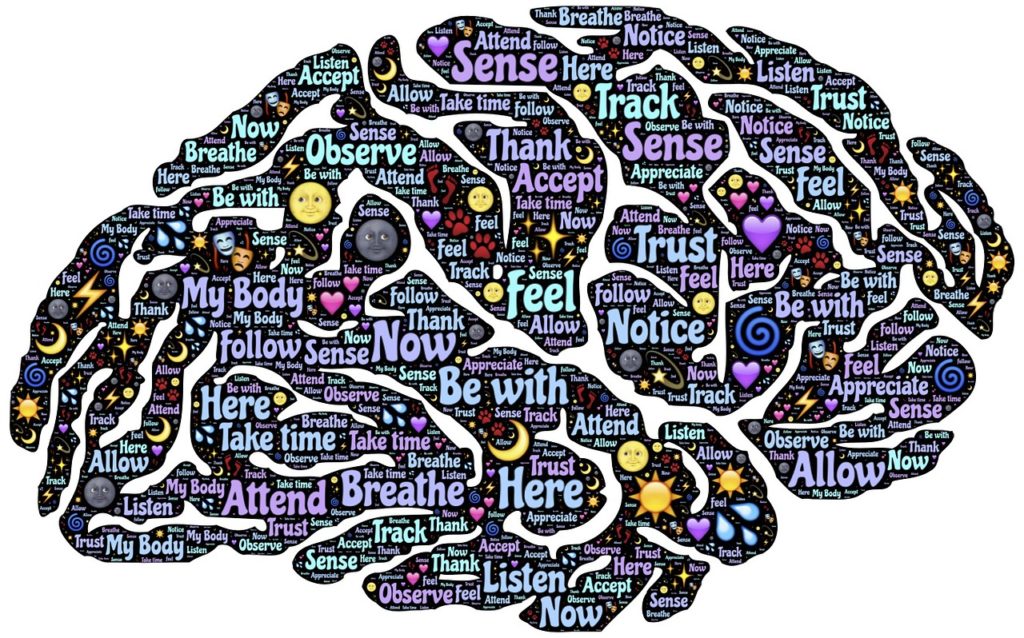What is Acceptance…
Acceptance is the willingness to let “what is” just be…while at the same time you commit to moving forward with your life and getting things done…
______
First, note that acceptance doesn’t mean passively having to “just put up with” our life situation; it certainly doesn’t mean “resignation,” or “gritting your teeth and bearing it.” Acceptance is rather the opposite – for it involves a proactive attitude, effort, and strategy that acknowledges and accommodates the painful thoughts and feelings that are a natural part of life while simultaneously allowing you to get on with doing what you know is important, helpful, and beneficial.
Acceptance is about opening up and making space for those thoughts, feelings, and memories – instead of trying to avoid, struggle with, or somehow control them. For this leaves one the energy, as well as providing the opportunity, to live, love, and pursue that which is meaningful and rewarding.
______
Now, one could ask, “Why the hell would I want to risk giving in and allowing painful thoughts and feelings to get me down and depress me; or worse, let someone take advantage of me and supremely tick me off?” Well, one short answer might be, “Because the cost in time, energy, and emotion to actually change the situation is prohibitive, yielding (whether one wants to admit it or not) a very poor return on investment.”
Another answer could be, “Because it’s likely you have little choice.” But then…what you do have a choice in is how you decide to manage the feelings – of sadness, fear, anxiety, and anger. You can, of course, choose the route of avoidance or denial; and thus let them constrain you, drain you, pull you down, and hold you back. Or, you can learn how to accept, reconcile, and move positively forward…
______
Consider for a moment: Upwards of 98% of what you deal with in life is beyond your control to alter or change. Think about that…!
Every day we accept – because most often we actually have no choice but to accept – the reality of all that goes on in our lives. And yet…we’d like to believe we have much more control than we do. But, well, that’s simply a rather convenient delusion; but then arguably a quite useful one because it allows us to indeed focus (when we so choose!) on that 2% or so of what we can control or influence…and that can make all the difference.
______
While we might not fully appreciate it, we may already be, actually, quite good at acceptance. For until one comes to realize autonomy (usually some time during adolescence) and develops a sense of self-efficacy, acceptance is what one often did…while, of course, never thinking about it.
Or, maybe not…because it’s also quite natural to learn and engage other “skills” (a.k.a. “coping mechanisms”) that can “get you through (or around or over)” difficult, problematic, inevitable, and traumatic experiences. The more familiar of these include denial (e.g., repression, rationalization, blaming) and avoidance (e.g., distraction, procrastination, substance use). Our delusions often lead us into thinking (hoping) we can sometimes avoid or change the given reality. And yet the fact is, although avoidance and denial can work (until of course they don’t), in the long run they just don’t work very well.
______
Acceptance, as it turns out, is an essential cognitive skill to learn because most things (and in particular painful thoughts and feelings) are inevitable…and inescapable. Where people so often get into serious trouble is in that “trying to avoid, deny, or control them”…and these efforts always lead to more negative and distressing experience. So, while you can’t eliminate or escape them, you can learn to deal with them far more effectively and in such a way that they have much less impact and influence over you.
So, What is Acceptance Really
Acceptance is a process, the “using” of a psychological skill…which involves recognizing that what is can’t (or won’t) be changed while directing your conscious effort to focus on doing the other things that make your life valued, meaningful, and rewarding.
This means that the Rider must first consciously drop the struggle to avoid or deny, and instead allow one to be mindful of those thoughts and feelings however difficult or painful they may be. But then it also requires the Rider to direct one’s efforts and energy into doing what is truly important, necessary, and desirable.
______________________________________________________________________________

